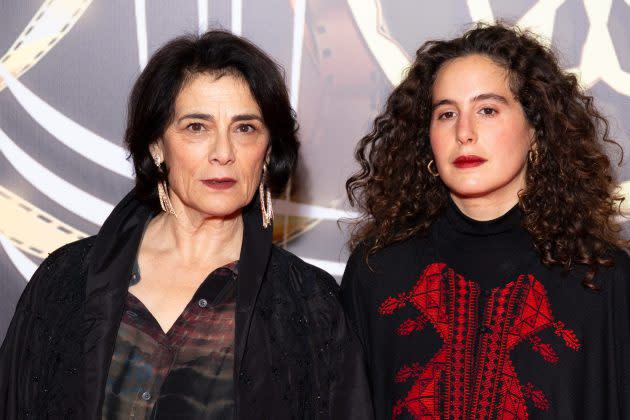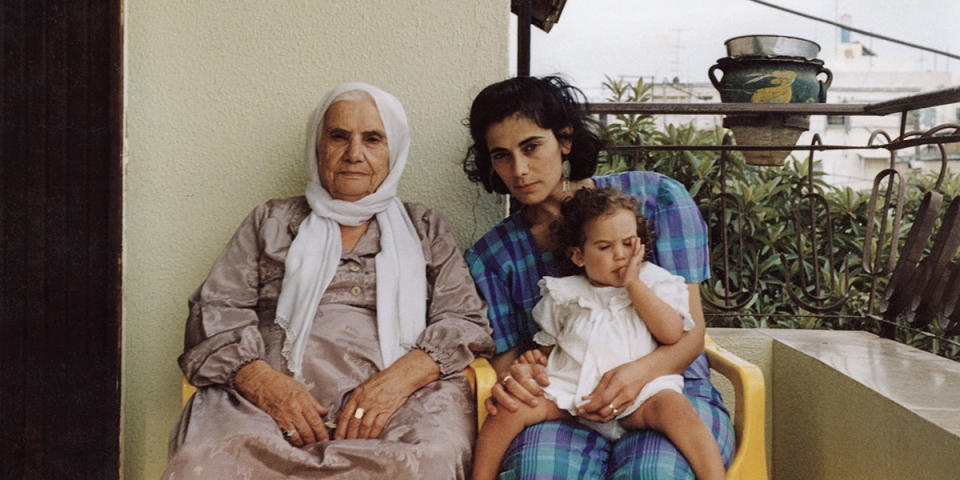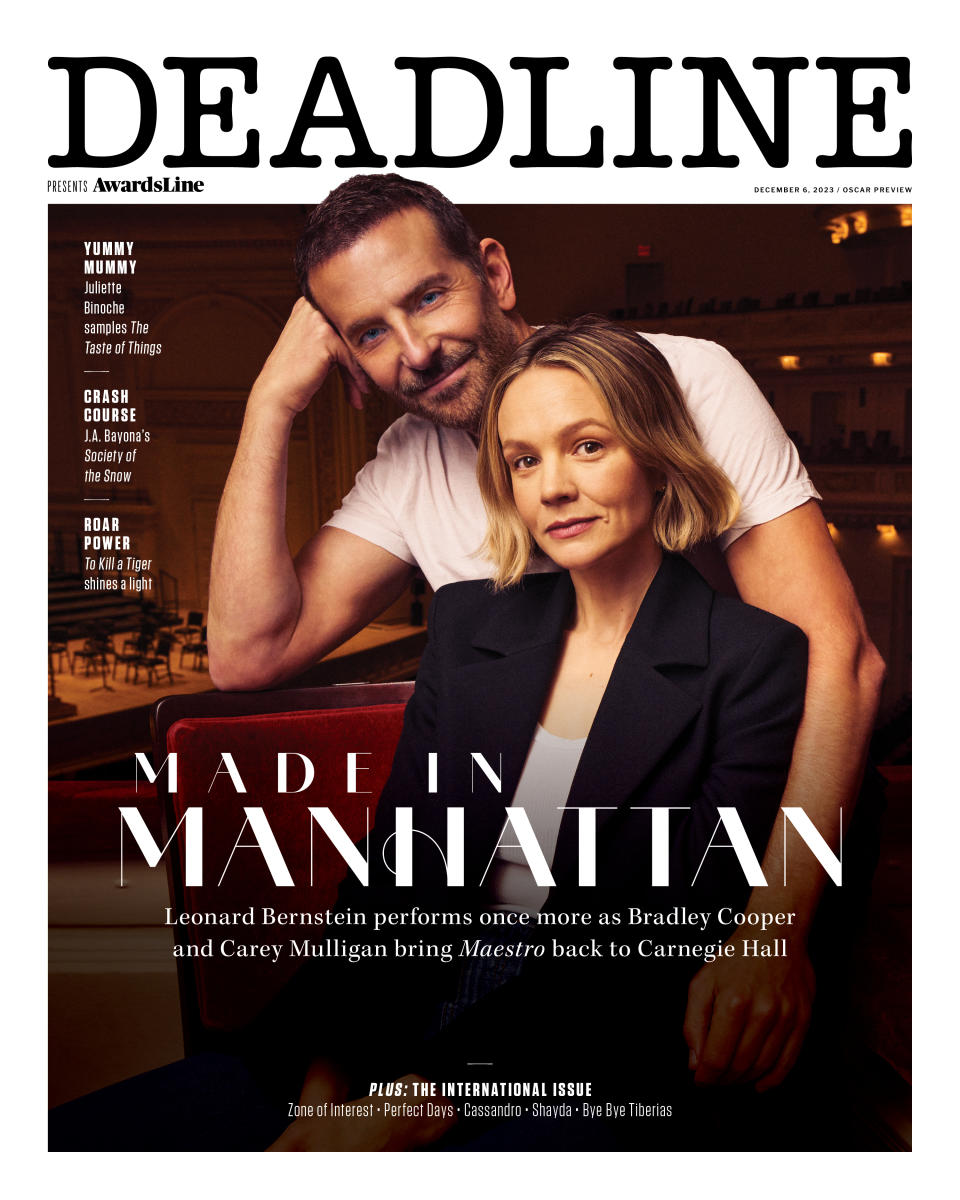‘Bye Bye Tiberias’: How Documentarian Lina Soualem & Her Actor Mother Hiam Abbass Explored Their Female Lineage

Following her film, Their Algeria, documentarian Lina Soualem returns to her family once again for an in-depth look at its rich history. With Bye Bye Tiberias, Soualem focuses on several generations of women in her family, beginning with her mother, Succession star Hiam Abbass, who, as a young woman, left her home country of Palestine for France, where she still lives today. While Their Algeria followed the story of Soualem’s grandparents who decided to divorce after 62 years, Bye Bye Tiberias looks at what it means to leave your family and culture behind and the generational thread between women.
DEADLINE: Hiam, how did you feel when Lina first floated the idea of you being the subject of her film?
More from Deadline
HIAM ABBASS: No way! But in the beginning, of course, Lina wasn’t very clear about what she wanted herself. She knew she wanted to do a movie, she knew she wanted to speak about the women in my family, the four generations, the transmissions between them, the way they each had survived, the difficulties she had to live in order to fulfill her life as a woman and as a mother, as a transmitter somehow.
But this wasn’t enough to convince me into going into my personal life in a way and just opening up really to the camera.It was the fact that I trusted her cinematographic vision and her engagement, her political engagement, her social engagement, the way she really wanted to tell this story, that brought me to “yes”, to finally see the camera as Lina’s eyes, and like I was talking to Lina somehow. I was talking to someone who is from my body and who’s from my blood. Once I opened up, I felt like I’m part of this narration, part of this importance in telling this story.

DEADLINE: Was there undiscovered pain in you, connected to your having left home that was difficult to look at?
ABBASS: Yeah, I think so. I think you’re right to ask that question. I think once things happen to you and your past is your past and whatever it is, painful, joyful, whatever, it’s just always… even the effort of going back to visit the past is not a natural thing really, because in order to continue in life and in order to get wherever you want to get, you just look forward.
I left because it was too painful. So even just thinking about having left is already something that is not easy to think of. We are made to be in families and to be in communities and to have that belonging. So just displacing yourself from there, whether it’s a personal choice or a forced choice on you, is a very complicated thing really to live with.
DEADLINE: Lina, you had home videos as source material that your father had made from when your mom would take you back to her homeland?
LINA SOUALEM: When I first thought of the film, I went to look back at the home movies that I had at home that we always looked at when I was younger, but really as souvenirs of happy times, of vacation. And it was the first time that I was seeing them as an adult. And I was seeing things that I had never seen before. First of all, the presence of women, that was really striking. The fact that they were dealing and administrating everything. The fact that I realized how much they influenced me and my childhood and the way I grew up. I was seeing all that and I discovered that in some of the images, my mother didn’t feel so much at ease in these places when it was also supposed to be home. So, I started questioning again the fact that she had left, and that she never really told me about her past, nor about the reasons that she left. I was trying to understand what her exile meant for her. And what did she carry from the mountains of Galilee all the way to France?
How does a woman find her place in the world, especially when she’s caught between worlds? How all the women of my family that I was seeing were actually women that have been exiled, that have suffered from forced displacement, that didn’t have always the freedom and independence to choose their own path, but they have managed, from what I knew, to raise their children to transmit values of love and forgiveness. And they had managed to take their destiny into their hands.
DEADLINE: Hiam, how did watching the film affect your view of yourself? It must be very different from watching yourself act.
ABBASS: I really have to admit that whenever I am playing a part, I never see myself, but I really see the part, I see the character that I’m playing. And I refer to that person as ‘she’ and never like myself in a way. This time, I didn’t look at myself as myself, but I looked at the ensemble of the women as part of the narration, as part of what Lina wanted to say about the story. And the first time I watched that movie, I felt very comfortable, contrary to every time I watched myself playing a part.
DEADLINE: Lina, your co-writers are women, as are your cinematographer and your editor. Was that partly about going into spaces where it would feel more appropriate to have women behind the camera?
SOUALEM: I think it was a natural choice because I was telling the story of all the women of the family that I worked with. Not only women, but also women from Arab descent, Middle Eastern, that would understand the language, understand the culture, and understand the subtext, because silences mean something. Some expressions mean something. And I needed to work with people that would understand things, and to whom I didn’t have to explain things. Also, I needed to be surrounded by people that were close to me because it was a very hard film to make emotionally, and it’s still very hard when we see the political context that surrounds the reality of our stories.

DEADLINE: Given the current political situation, has it changed what you hope people take from the film?
SOUALEM: What’s important for me is for these stories to be able to exist in the public space, for these women to be visible-ized and recognized in their full humanity. I have always spoken about dehumanization — women having to start everything anew many times again and again, having to leave everything behind. And what we are seeing today is the same thing happening: the fear of losing your home, your land, your family, your story. The risk and the fear of being erased or not being connected to your history anymore because it’s not recognized. And I think that’s something that has always accompanied me as I studied history and political science, and I’ve always cared a lot about what it means for a human being to live in societies in which you’re not fully recognized in your history.
ABBASS: With all the violence that is going on and unfortunately still going on, I think this movie for me is just like a tender caress. A positive, hopeful way of looking at things. And it’s contagious. And I hope it will really contaminate the whole humanity in a way, because this is what we need. We need this tenderness, we need this hope, we need this positiveness in life right now. And it’s really beautiful to know that this is part of my past and this is part of my life.
Best of Deadline
2023-24 Awards Season Calendar - Dates For Oscars, Emmys, Grammys, Tonys, Guilds & More
2023 Premiere Dates For New & Returning Series On Broadcast, Cable & Streaming
Sign up for Deadline's Newsletter. For the latest news, follow us on Facebook, Twitter, and Instagram.

